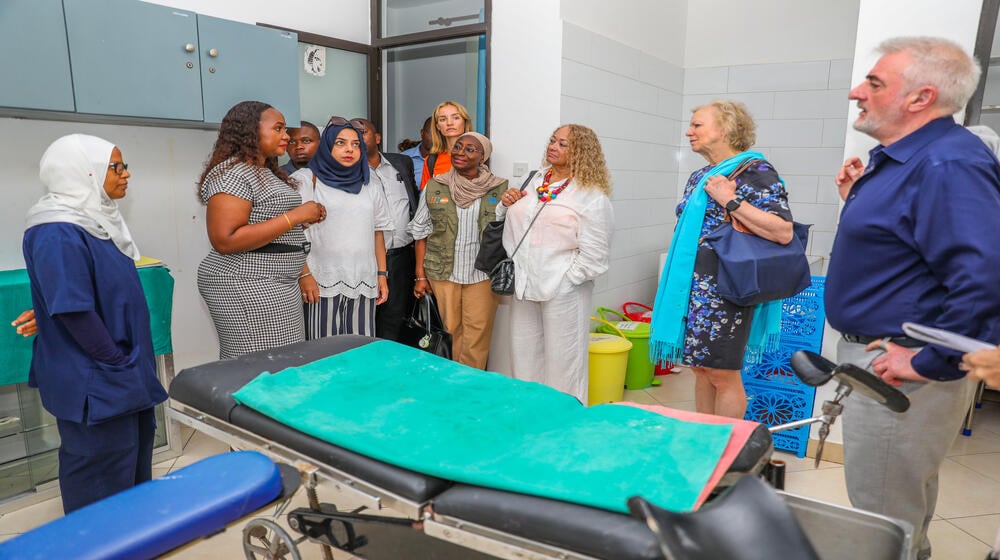UNFPA Tanzania had the privilege of hosting a six-day study tour for the UK All-Party Parliamentary Group (APPG) on Population, Development & Reproductive Health.
The delegation, consisting of five Parliamentarians from the United Kingdom’s House of Commons and House of Lords, visited Tanzania to see first-hand the vital work that UNFPA and its partners are delivering to advance sexual and reproductive health and rights (SRHR) for women and girls. The trip was also an opportunity for the parliamentarians to deepen their understanding of the investment needed to harness the demographic dividend and to implement the commitments of the International Conference on Population and Development (ICPD) in Tanzania.
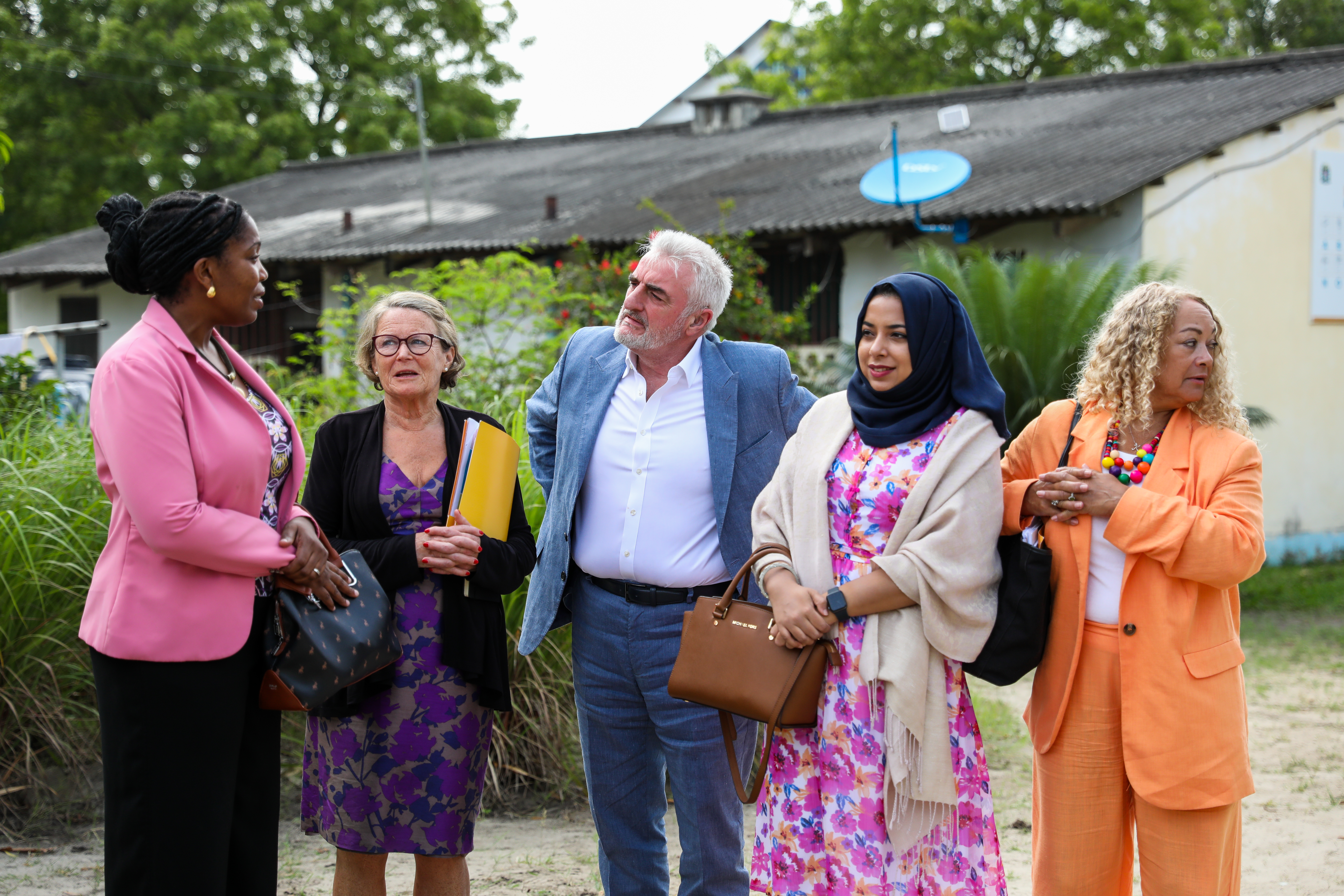
The United Kingdom has been a generous supporter of Family Planning and Sexual and Reproductive Health and Rights (FP/SRHR) programs in Tanzania since 2015. They are also the lead donor to the UNFPA Supplies Partnership, and their support is crucial in strengthening the procurement and supply of maternal health life-saving commodities.
History of collaboration
Support from the Foreign, Commonwealth and Development Office (FCDO) of the UK has enabled UNFPA to contribute 53% of Tanzania’s national requirement for maternal health life-saving commodities between 2015 and 2022. This has helped prevent 10,606,806 unintended pregnancies, avert 959,640 maternal deaths, and prevent 2,971,000 unsafe abortions.
Despite these strides, the unmet demand for family planning commodities in Tanzania is still 22 percent. Bridging this gap is crucial to ensure that every child is wanted, and behind every act of family planning are the commodities that facilitate it.
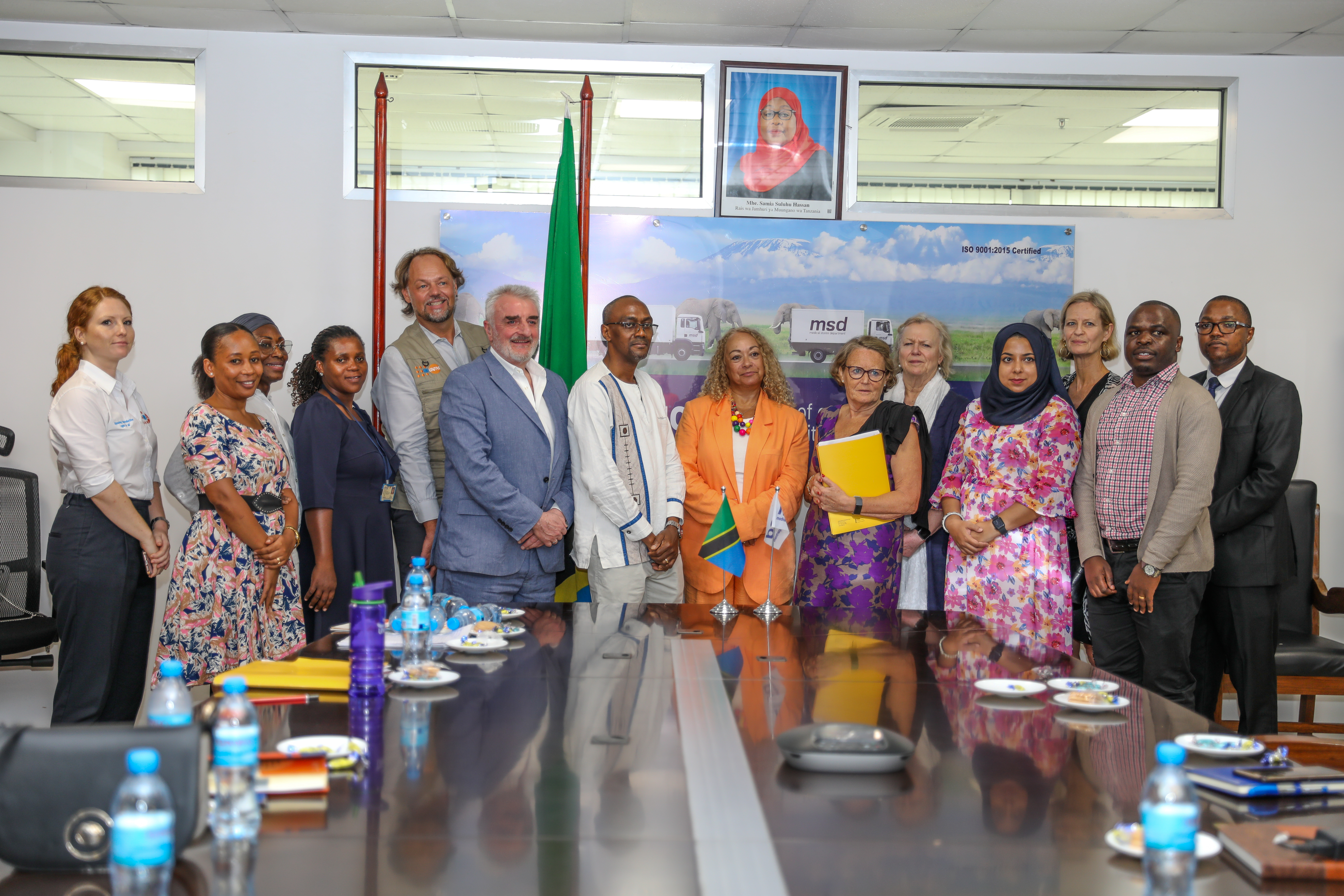
With safety helmets on, the delegation - which included Apsana Begum (MP), Kim Johnson (MP), Tommy Sheppard (MP), Baroness Jenkin and Baroness Hodgson - toured the storage facility of the Medical Stores Department and gained insight into the management of contraceptive supplies.
These commodities, including contraceptives, facilitate achieving zero unmet need for family planning, zero maternal deaths, zero gender-based violence and zero new infections of HIV. Without sustained investment, Tanzania will struggle to harness the economic growth potential that comes from an increased working-age population and implementation of the ICPD commitments.
The East African nation is one of the eight countries that will account for half of the projected global population growth by 2050.
Mark Bryan Schreiner, UNFPA Representative in the United Republic of Tanzania, expressed appreciation for the continued support that the UK has provided to UNFPA Tanzania, when welcoming the delegation:
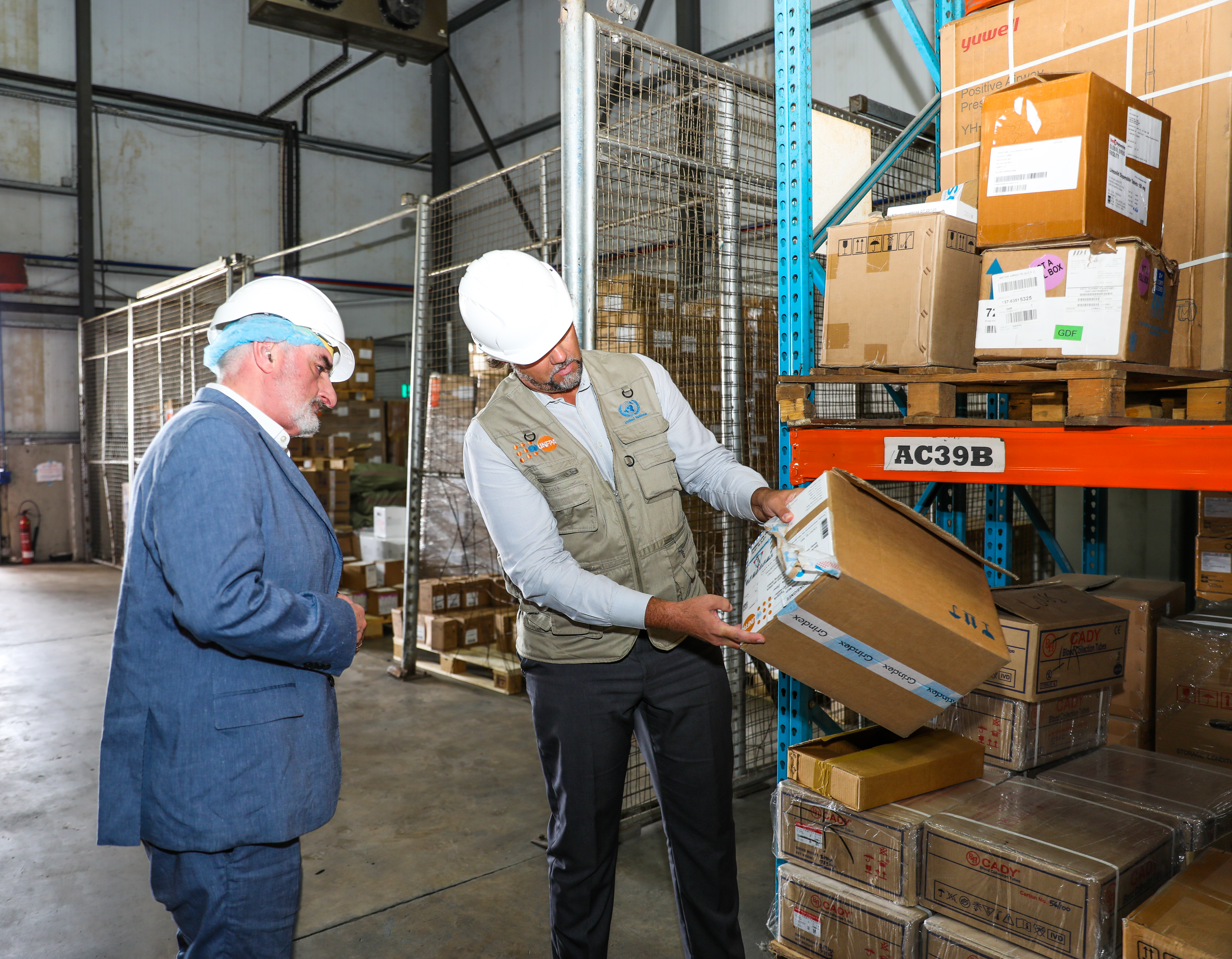
“The right investments hold a transformative power to turn population growth into an opportunity. Investing in human capital is crucial: by investing in education and healthcare, we ensure the growing youth and working-age population is well-educated and healthy – that every young person’s potential is fulfilled,” said Mark.
As they met with front line service providers, beneficiaries, government officials and program officers, the UK delegation got to see the supply-side of FP/SRHR, maternal health, and HIV which are essential to population and development.
Currently the FCDO, in collaboration with UNFPA, is implementing a GBP 22,064,000 million multi-year (2017-2024) Scaling up Family Planning project in Tanzania.
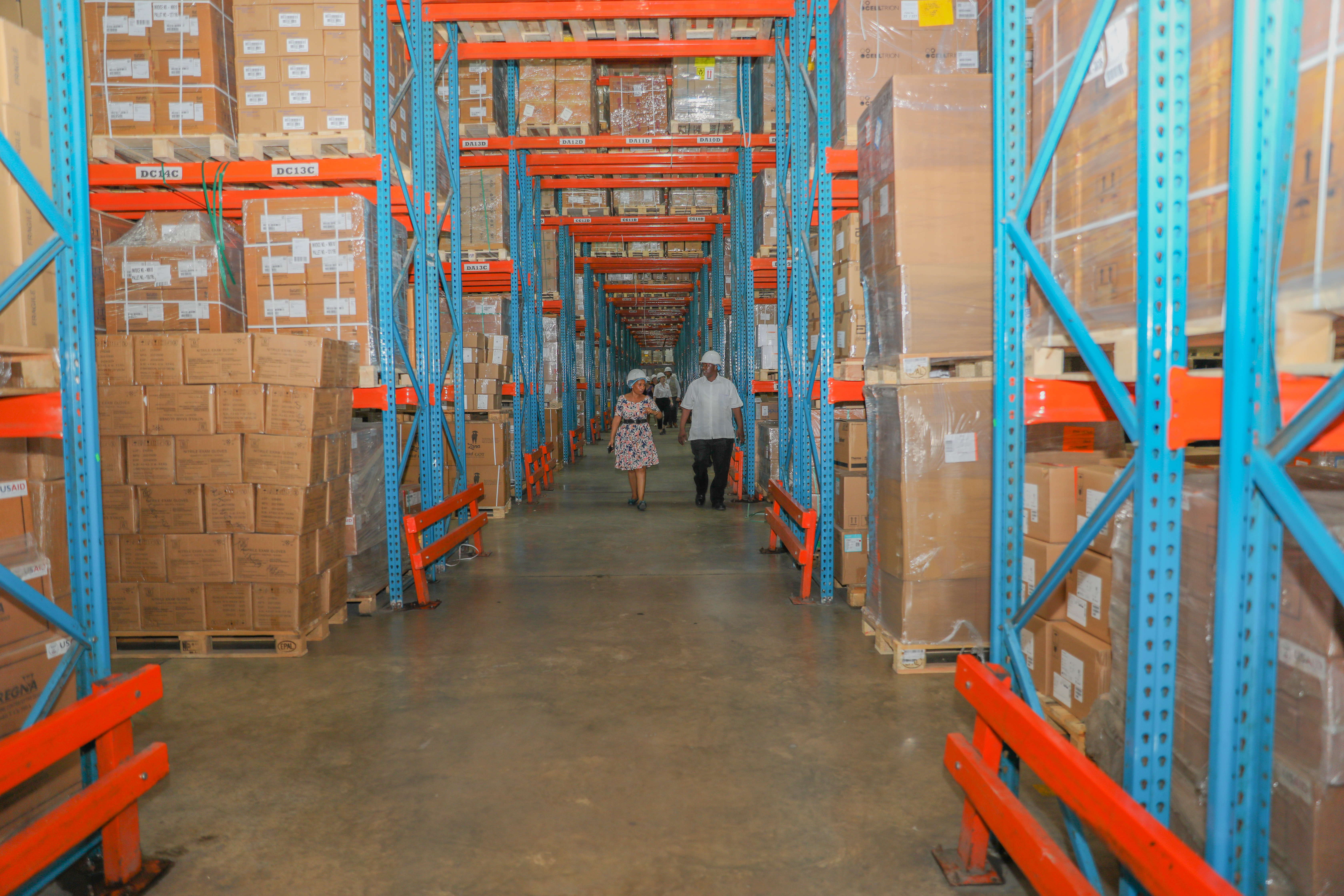
Access to sexual and reproductive health and ending gender based violence
At the Magirisi health facility, the delegation met with health care workers and youth peer educators that provide Youth Friendly Services (YFS) on sexual and reproductive health and rights.
UNFPA helps train the service providers at Magirisi PHCU, and Youth Peer Educators create awareness on the available YFS through community outreach visits. Through this workUNFPA has expanded access to SRHR for adolescents.
Youth is a key demographic in Tanzania, with 34 percent of the population aged 15—35, according to the 2022 national Demographic and Health Indicator Survey (DHIS 2022)
Investments in Youth Friendly Services have improved SRHR outcomes but more funding is urgently needed to thwart the high rates of teenage pregnancy, child marriage and early sexual debut in Tanzania that also expose adolescent girls and boys to sexually transmitted infections, including HIV.
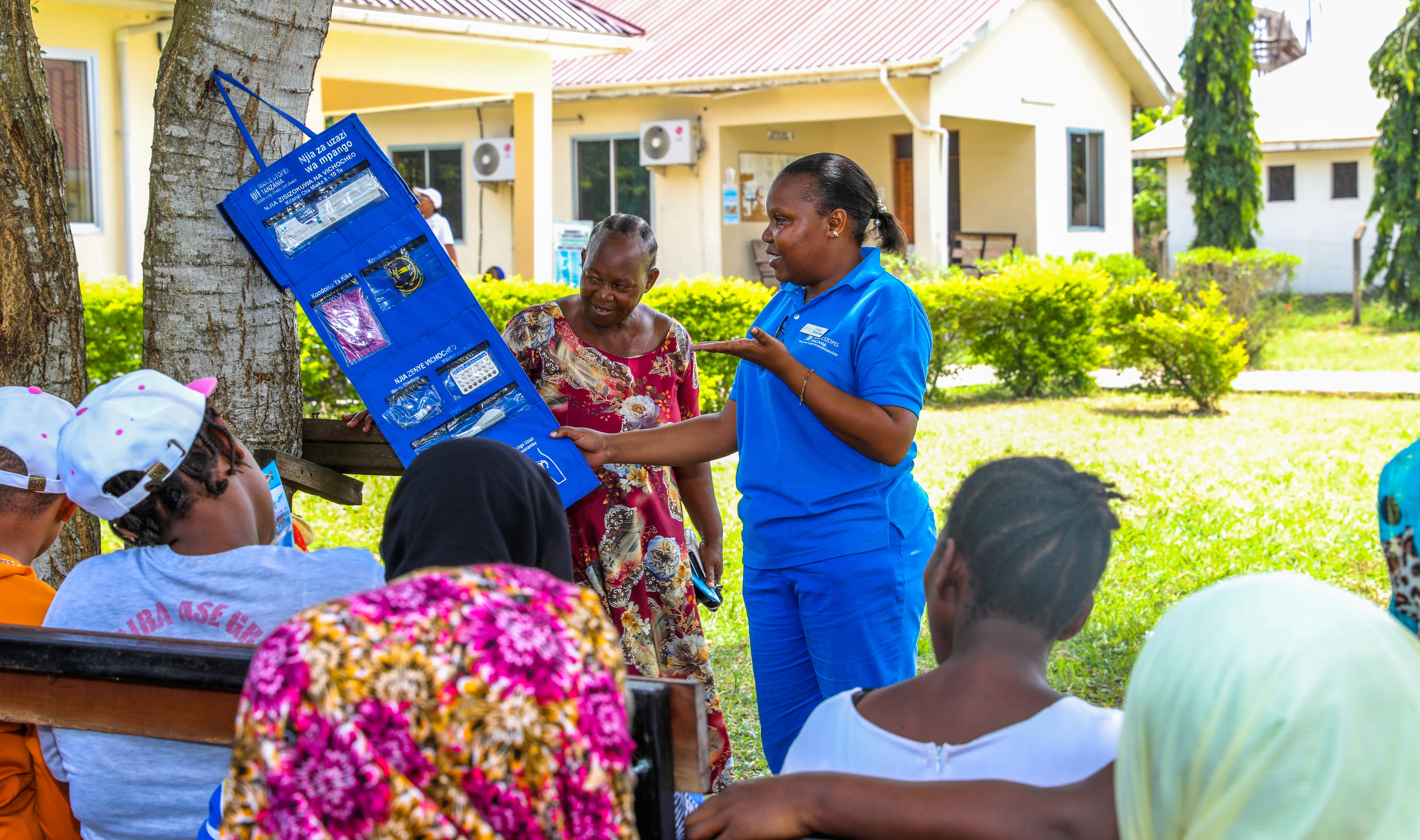
The delegation also visited a UMATI youth centre that has provided sexual and reproductive health information and education services in Tanzania since 1982. Here, they were met with dance and music performances from the young people at the centre.
UMATI is part of Planned Parenthood Federation (IPPF), and its youth centre includes library, music room, classroom, game area, doctor’s room, and a laboratory. The Temeke UMATI centre provides a friendly environment for in-school and out-of- school youth to convene. At the centre, they receive SRHR education and services in HIV and sexually transmitted infections (STIs), family planning, and Gender based violence (GBV). UMATI also empowers teenage mothers with skill development in cooking and sewing, while their children are being taken care of in the centre’s daycare.
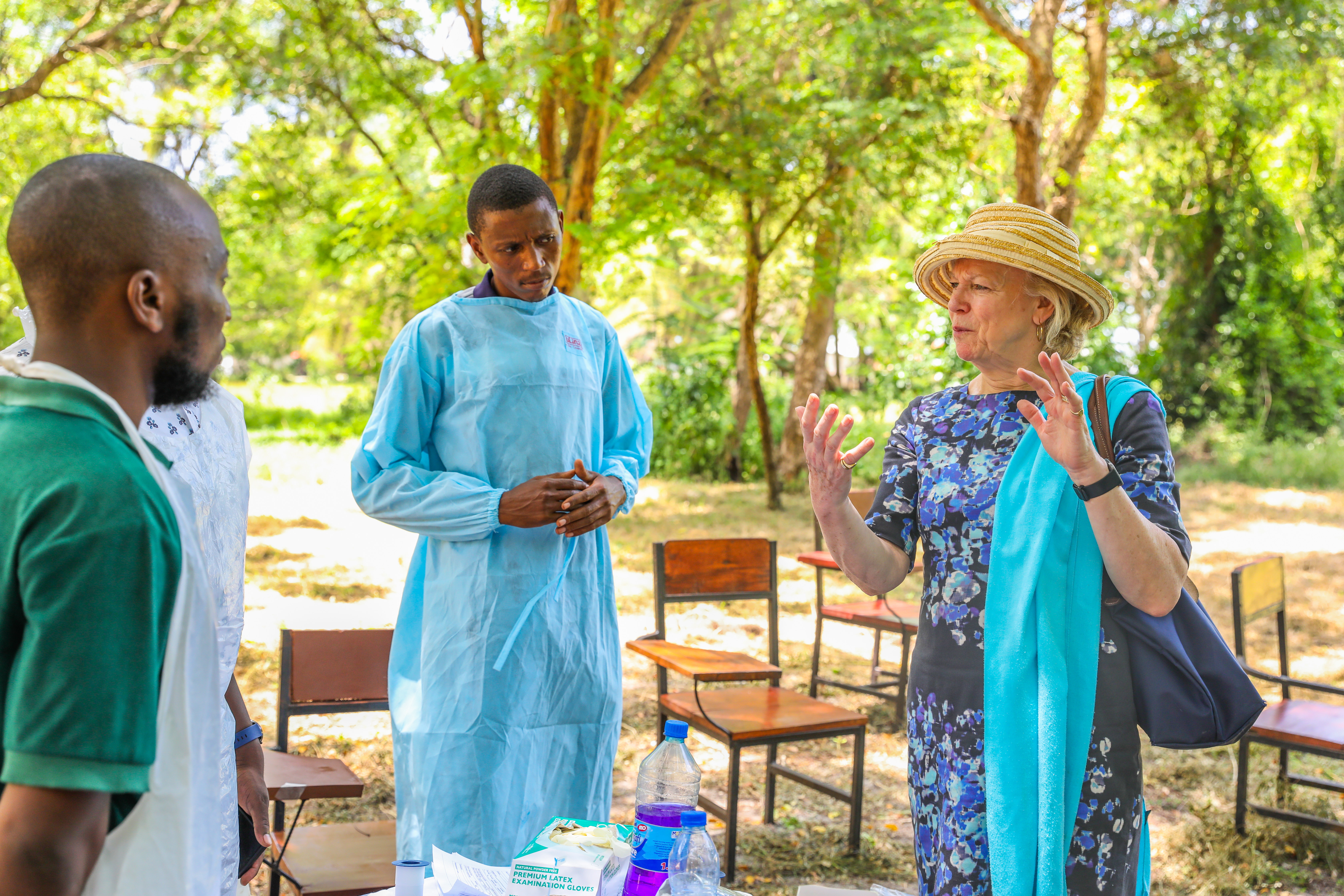
There is limited access to a full range of quality contraceptive services for adolescents and young people, who also face a bias from health care providers who are reluctant to serve them.However, youth and women with disabilities face particular challenges in accessing SRH services. To gain an understanding of the inclusion challenges in SRH, the delegation visited a Vocational and Rehabilitation Centre for Youth with Disabilities in Yombo, located in the outskirts of Dar es Salaam.
With support from the Swiss Embassy, UNFPA funded the construction of a waiting lounge and provided medical equipment that resulted in improved access to quality healthcare services for students with disabilities and the nearby communities. The facility serves two Wards with a population of about 16,000.
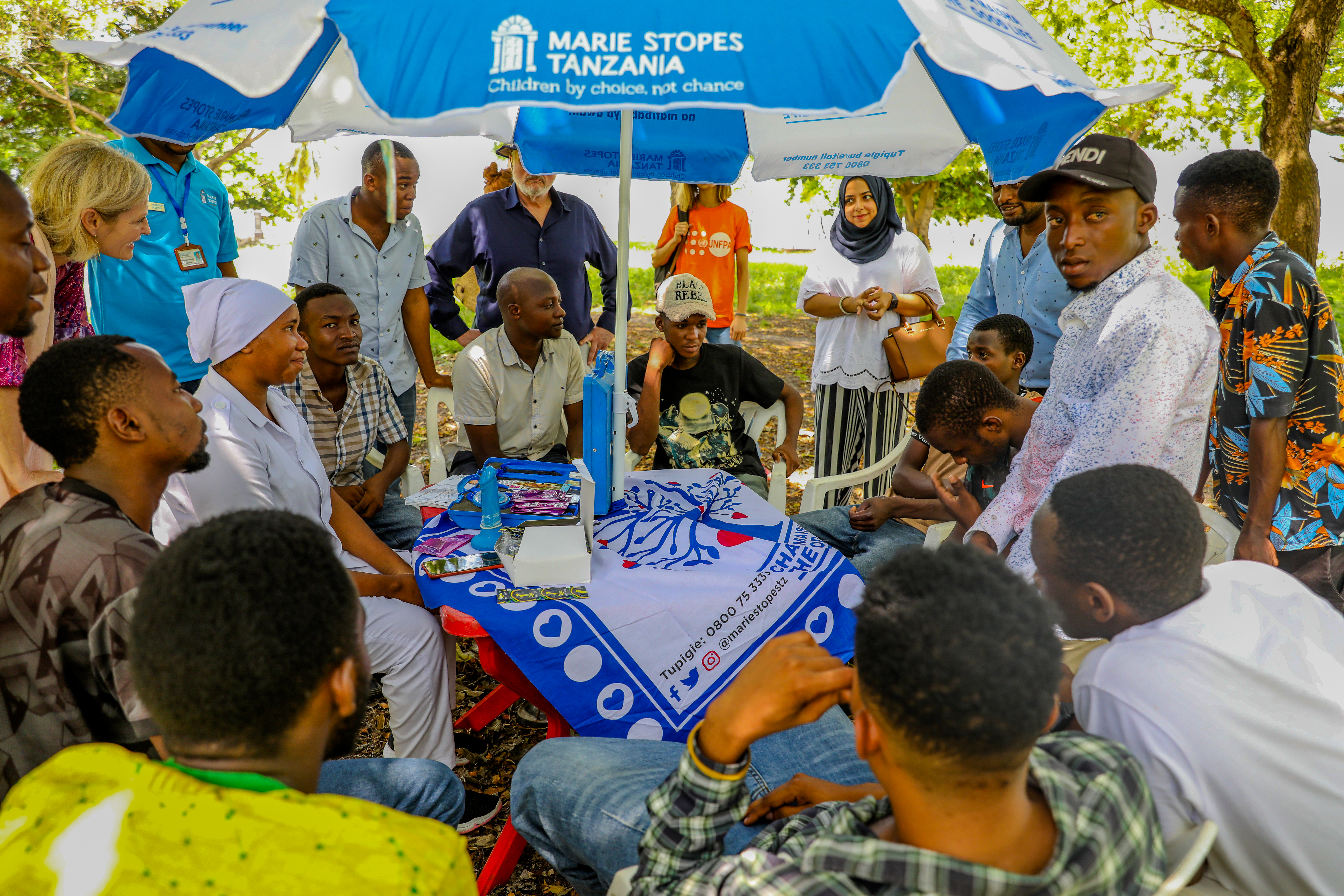
The delegation paid a visit to Marie Stopes Maternity Hospital (MST), as well as to an MST Outreach team at Kerege Health Centre, and an MST Youth Event in Bagamoyo. These programs ensure Reproductive Choice through addressing the unmet need for Sexual and Reproductive Health (SRHR) services. The MPs saw government and non-profit partnership in action, the SRHR needs of the most marginalized and underserved, and the policy and socio-cultural factors that drive them.
From a humble beginning, the MST hospital has grown into a fully-fledged maternity hospital, with an operation model to fill gaps, instead of duplicating services provided by the government. MST’s outreach teams are operational in all regions of the country and provide services in 49% of public health facilities in the country.
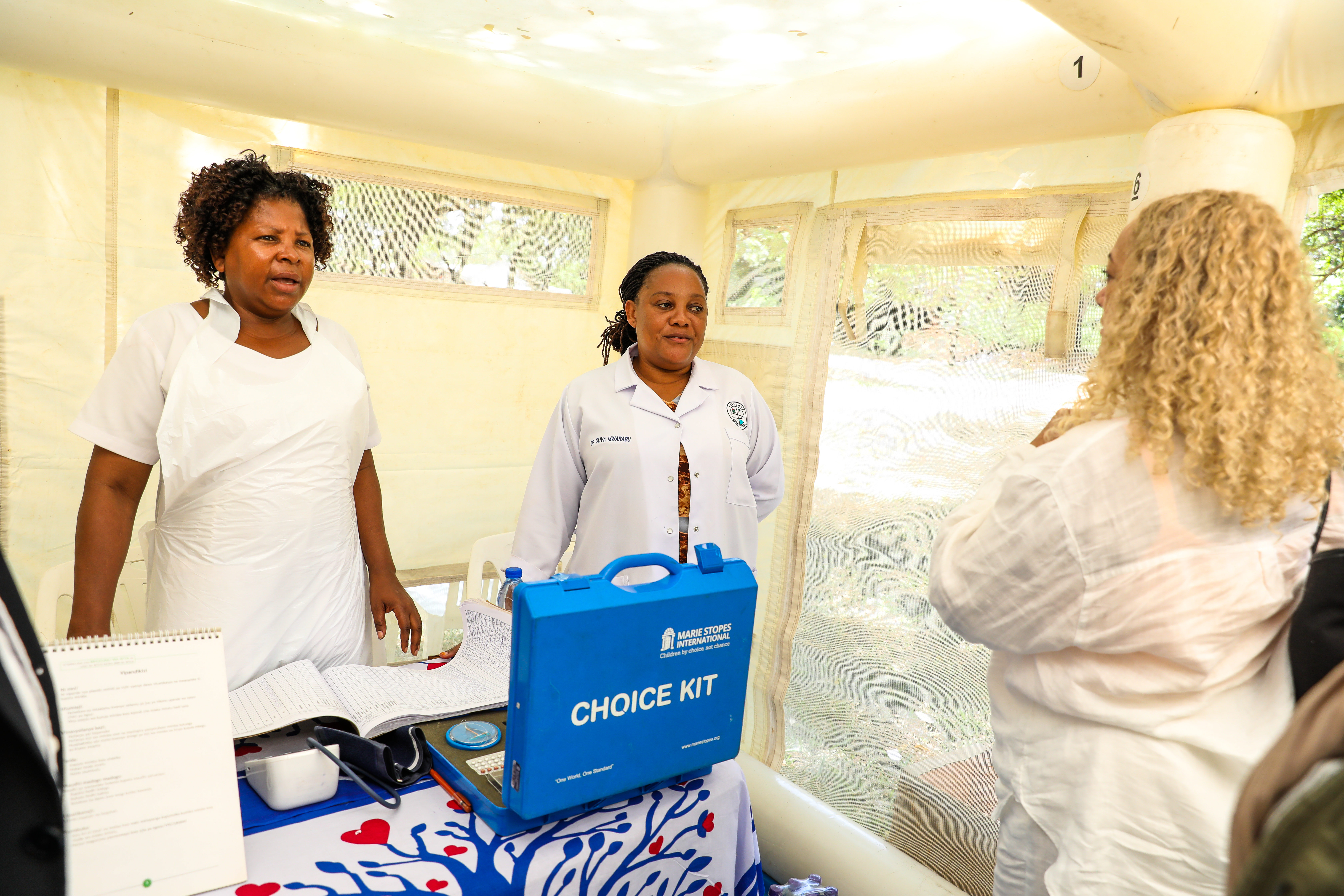
After becoming financially self-sufficient at its main hospital in Dar es Salaam, MST aims to emulate this model in other clinics and maternity centres. The surplus will be invested in subsidizing and enhancing donor funded programmes, extending its reach and impact of service delivery to the most marginalized and underserved communities in Tanzania.
The parliamentarians also visited Kivunge hospital in Zanzibar, a health facility that integrates GBV/VAC services in routine inpatient and outpatient services.
For a five-year period (2019-2024), the FCDO has funded the Scaling Up Family Planning (SuFP) program. This program provides integrated and inclusive family planning services, including the integration of preventive and responsive services for Gender Based Violence and Violence Against Children (GBV/VAC), as well as ensuring inclusive services for people with disabilities and young people.
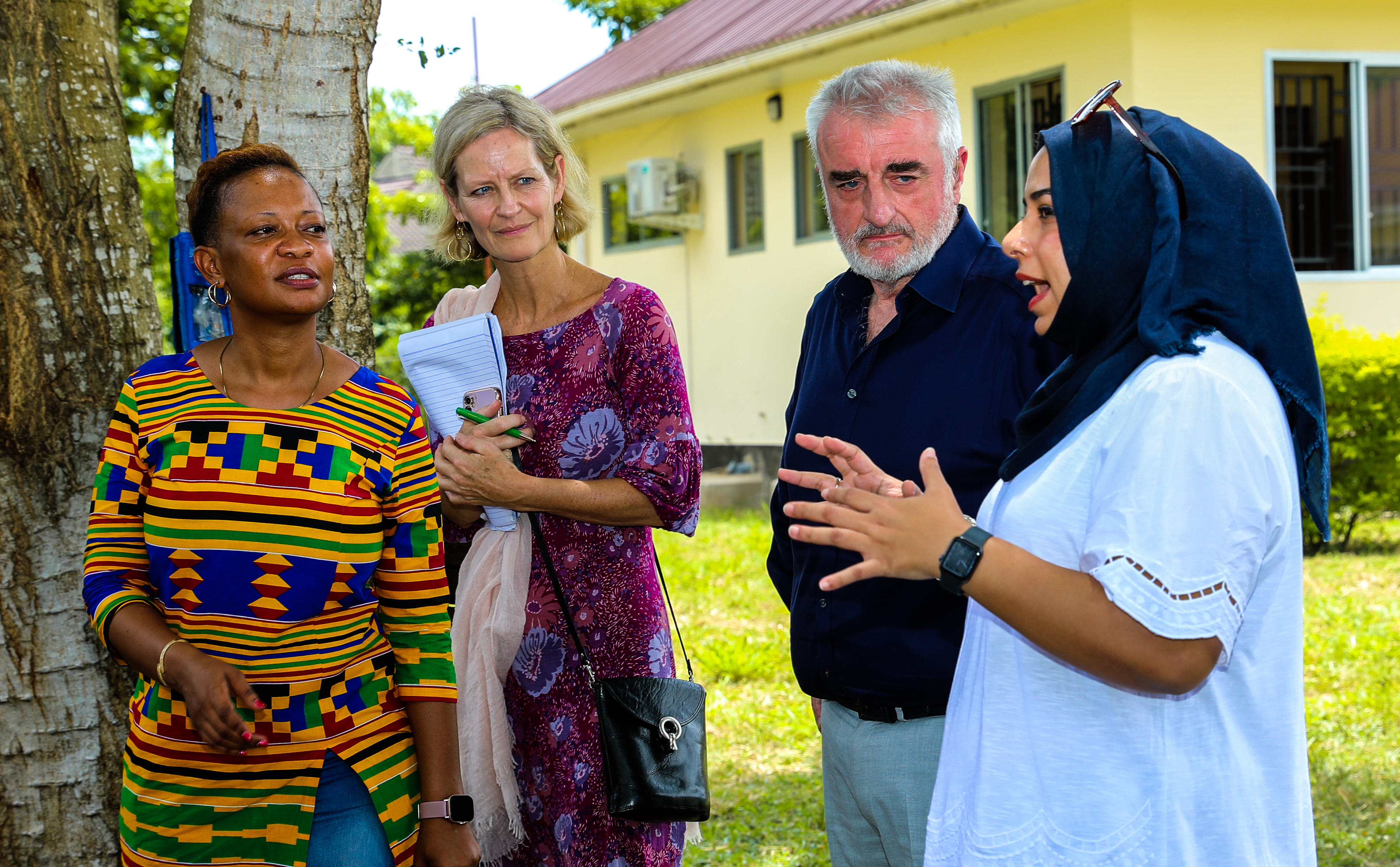
In addition to Zanzibar’s five regions, the Scaling up Family Planning project is implemented in eight regions on Mainland Tanzania and at all one-stop centres in Zanzibar. UNFPA also supports strengthening data capture and reporting expansion of available services to lower-level health facilities.
For Media queries and further information please contact:
Warren Bright,
Communications Analyst,
UNFPA Tanzania,
Email: bwarren@unfpa.org,
Mobile: +255 764 43 44 45

